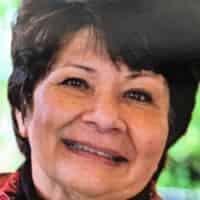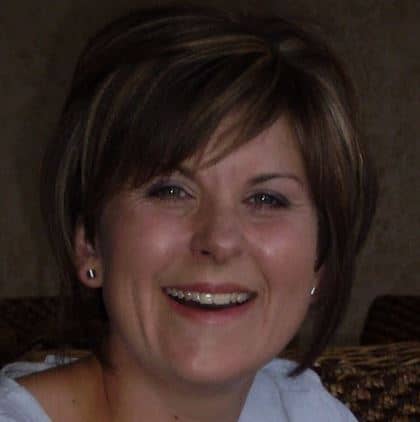

Members of the Gilmore family moved to North Queensland in the 1880s. Originally from Scotland and Ireland, our great-grandfather left Ireland in the 1850s when Ireland was in the grip of the potato famine which left the Irish economy in tatters. He went to New Zealand first, where he married and had a large family. George and Catherine Gilmore with their sons, William, George, Frederick and John, moved to Queensland in 1875, and they opened a saddlery and leather goods business in Stanthorpe. From there they moved to Brisbane where five daughters were born before George died in 1884. Our grand-father John Gilmore was five when the family moved to Queensland.
Grandfather John worked at a few jobs before he landed a position as “Donkeyman” (engineer) on the coastal steamers sailing between Brisbane and Cooktown. He had married Jane Shead in 1896, and by 1906 they had four children. John’s brother George had moved to North Queensland in the 1880s following the gold rushes to the Palmer and the Hodgkinson Rivers. Jane’s brother Alfred had arrived from England in 1879 and worked around Mackay before moving to the Herberton district to mine tin. John decided to follow the family tradition of mining and followed George, William and Alfred to the North in 1907, followed by his wife Jane and their four children. They settled in Wolfram Camp where John took out mining leases and also set up a small scale crushing plant for small parcels of ore produced by independent miners.
Our father, Thomas Vernon Gilmore always joked that he was born nine months and ten minutes after his mother arrived in Wolfram Camp to join his father. Tom was delivered by his nine year old sister, Madge because there was no medical assistance to be had in Wolfram Camp at that time. Tom spent the first ten years of his life in Wolfram Camp enjoying the life of a free spirit, chasing the family goat herd over the stony hills, swimming in the creek, and going to school. He showed an entrepreneurial streak early in life when he collected dingo ears for the bounty. Some of those ears most likely came from other canines, but by the time the Shire Clerk got to open the bag full of decaying ears, he was not inclined to investigate too closely.
In 1918 at the end of the First World War, the demand for wolfram dried up, and mining was no longer viable, so the family moved to Cairns where Tom went to Cairns Central State School, and later Cairns High School. He worked at the Harbour Board after he left school and when his parents bought the Tolga pub, worked at the Pig Board. However, the call of the land was great, and Grand-father took up cane growing at Babinda, and young Tom worked with his father planting and cutting cane. John Gilmore died in 1930, so Tom and his brother Jock bought a block of land at Emerald Creek at a Crown lands auction in 1931. They planted their first crop of tobacco in December 1931 after clearing a small patch of the farm with an axe and a tree puller. The crop yielded a small amount of tobacco, and another crop went in the following year. Like every other crop in the district, it failed due to an infestation of black mould. It was obvious that the farm would not support both brothers so Jock went back to Cairns to work in the sawmill and Tom battled on, on his own.
Life was hard, there was no money to be had from a series of crop failures, the tobacco buyers were reluctant to buy Mareeba tobacco, and diseases in tobacco were difficult if not impossible to control with available chemicals. He struggled on until 1936 when he married Anne MacDonald, a nursing sister, whose parents had been dairy farmers at Millaa Millaa. At one stage, he was forced to go back to Babinda to one of his previous jobs as an ambulance bearer to earn enough money to continue farming. He had always been interested in politics, and the plight of farmers, and in 1940 was elected to the Mareeba Tobacco Association. After the bombing of Pearl Harbour, when Australia was facing invasion from the Japanese forces, Tom resigned from the Association, and left the farm to join the Air Force as a Fitter, repairing damaged planes from the war in the Pacific. He was based in Brisbane, Stanthorpe, and Bundaberg during his war service. In 1944, Tom like many other farmers, was sent back to their farms to produce food to feed the 60,000 allied troops stationed on the Atherton Tableland. He was not demobilised from the Air Force until 1948. In the meantime, the tobacco industry in Mareeba had become more viable due to the difficulties of importing tobacco from America and Africa during the war. Australian tobacco suddenly lost all the bad qualities the manufacturers had claimed when they were faced with a lack of cheap imported tobacco.
In 1948 the first Tobacco Board was established, and Tom was appointed to it. He served in that capacity for a number of years through the turbulent times of the 1950s and early 1960s. He also served as a Director of the Association during that time. Tom Gilmore was elected as the first member for Leichhadt in the Menzies Government of 1949, but lost the seat in the Double Dissolution of 1951. He was also elected as the State member for Tablelands during the 1950s and early 1960s. After he lost the seat in the election of 1966 he gave up politics, but never lost his interest in the tobacco industry and was influential in that for many years. He was also involved with the Rodeo Association, working in the grounds during the years, and acting as announcer during the rodeos. Thomas Vernon Gilmore died in 1994 in Mareeba, where he had lived and farmed for well over sixty years. In his lifetime he had achieved much, and lived to see the birth and ultimate death of the tobacco industry.
The only son of Thomas Vernon and Anne Gilmore was born in Mareeba in 1946, and named Thomas John George after his father, Grand-father, and Great-grandfather. He went to school at the one-teacher Emerald Creek State School, and later to the Mareeba State School. He was sent to Gatton Agricultural College for his secondary education. His early life was dominated by his father’s involvement in politics and it would be fair to say that the whole family was immersed in politics for breakfast, dinner and tea. His contemporaries were the children of migrants who had arrived in the area after the Second World War, so multi-culturalism was the norm in his formative years. After growing tobacco on the family farm, and spending time in Canada he settled on his own farm with his wife, Sally. He grew grass and legume seed for the pastoral market, but the 1974 collapse of the beef market dried up demand, so he eventually sold the farm and diversified into real estate developing land for urban settlement. He also served as a Councillor in the Mareeba Shire Council for a time.
He followed his father’s career into politics when he won the seat of Tablelands in the State election of 1986. Tom was in his early 40s when he was first elected and was a “boy from the bush”. The FitzGerald Inquiry was a real eye opener into the machinations of politics at that time. The close of the Bjelke-Petersen era swept away many of the old guard of the National Party, and as a clean-skin, he was given his first Ministry in the Ahern Government. He was later appointed Minister for Mines and Energy. As the local representative for the Tablelands, was able to broker very good pay-out deals for the local tobacco farmers who were faced with the closure of the industry. He also tried to temper the effects of the World heritage listing of the Tableland rainforest which caused the demise of the local timber industry, but was not able to influence the Federal Government. Tom worked very hard for his electorate, but was not re-elected in the 1998 election.
After spending some time working for the Cape York Peninsula Development Association he was elected as Mayor to the Tableland Regional Council, an amalgamation of four of the previous Tableland Councils. He managed the largely successful amalgamation of the Mareeba, Atherton, Herberton and Eacham Shire Councils, however as a result of a referendum on the matter, the Mareeba Shire was de-amalgamated and returned to its original boundaries. In the subsequent Local Government elections conducted in November of 2013, Tom was elected Mayor of the Mareeba Shire and the new council was sworn in on the 2nd of January 2014. Tom was returned as Mayor at the 2016 Local Government elections.
The contribution to the Mareeba community by the Gilmore family has spanned two generations through some of the most turbulent political and industry times. Some of the family still live and work in the area, but Tom is the last Gilmore to carry on the tradition of elected representative of the area.


Angela was born in Mareeba but like most young people left to pursue a career in Corrections and then Community Services. On retirement, she returned to her home town and is happy to be contributing to progression and preservation.

Since the age of 20, Al has been part of the radio industry working at stations 4VL, 4CD, 4RO, 2ST, 2LT, 3BO, 4ZR, 4VL (again) 4KZ, KOOL FM, 4AY, KIK FM & 4AM. Al’s former roles have included announcer, salesman, sales promotion manager, sales manager and part owner.

We are a local app design company located right here on the Atherton Tablelands. Drop us a quick email and we will help you analyse what a new or improved app might mean to your business.

Janet commenced work with the Mareeba Heritage Centre in July 2016. She had the vision to create this project and was instrumental in acquiring funds and putting the right people in place to bring this project together. Janet is passionate about community engagement and development.
© Mareeba Heritage Museum and Visitor Information Centre 2026